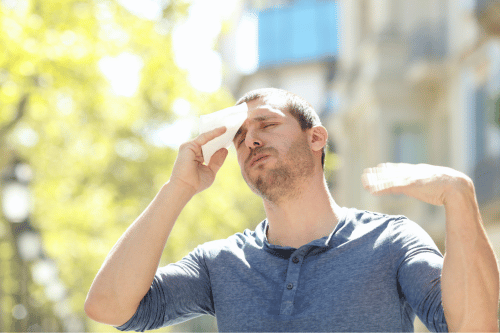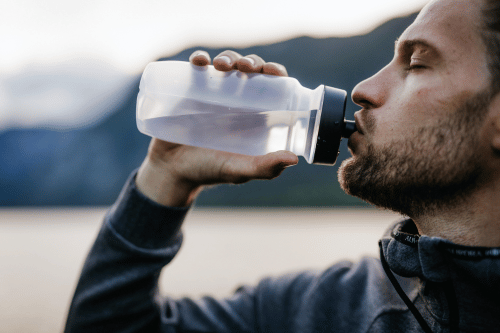The Science of Hydration and Mental Health
Role of Water in the Body
Water supports every major bodily function. It helps regulate blood pressure, maintain body temperature, and transport nutrients. Proper hydration ensures that cells—including brain cells—function optimally.
The Vital Role of Hydration
Water affects brain function and emotional stability. A hydrated brain can manage stress more effectively. Mild dehydration may impair mental functions like memory and attention.
Connection Between Hydration and Brain Function
Hydration plays a crucial role in brain health. Plain water consumption influences cognitive performance and mood regulation. Dehydration disrupts cerebral blood flow and oxygen delivery.
Water and Cognitive Function
Cognitive abilities such as short-term memory and mental flexibility suffer from fluid loss. Studies show decreased performance in cognitive-motor tasks during exercise-induced dehydration. Drinking water improves reaction ability and brain function.
Impact of Hydration on Mental Health
Mood Regulation
Proper hydration helps reduce mood swings. Mild dehydration increases the risk of anxiety and feelings of depression. Emotional well-being relies on stable hydration status.
Cognitive Function
Hydration directly affects mental functions. In cognitive performance tests, participants with optimal hydration scored better than those experiencing moderate dehydration. Brain Mapp and brain MRI scan research confirm these differences.
Anxiety and Stress Management
Feelings of anxiety increase with inadequate water intake. Acute dehydration can elevate stress biomarkers. Drinking a glass of water during tense moments may reduce stress temporarily.
Risks of Depression from Poor Hydration
Inadequate hydration increases the risk of depression. Mild dehydration affects mood regulation and lowers mental flexibility. Over time, this can contribute to chronic emotional instability.
Plausible Link Between Dehydration and Depression
The association between drinking water and symptoms of depression is supported by recent studies. A lack of plain water intake may worsen mental health status in both adolescents and adults. Acute dehydration is linked to a higher risk of depression and cognitive decline.
Tennessee Behavioral Health addresses these risk factors through education and individualized care. Our outpatient treatment program includes strategies that support both mental and physical health—including hydration habits that reduce the risk of depression.
Recognizing Dehydration Symptoms
Physical Indicators
Common symptoms of dehydration include dry mouth, low urine volume, and fatigue. Urine volume and average urine osmolality help measure the hydration state. Exercise-induced dehydration may also cause dizziness or rapid heartbeat.
Emotional and Cognitive Signs
Dehydration affects emotional stability and mental well-being. Symptoms include irritability, trouble concentrating, and feelings of depression. Negative effects intensify during high stress or physical activity.
Strategies for Maintaining Proper Hydration
Daily Water Intake Guidelines
Aim to drink enough water per day based on body weight and activity level. General guidelines suggest 8–10 glasses of water daily. Plain water remains the most effective fluid intake method.
Importance of Electrolytes
Electrolytes maintain cell hydration status and support brain function. Rehydration after water supplementation should include sodium and potassium for balance. A diet rich in minerals can help avoid adverse effects.
Water-Rich Foods
Fruits and vegetables with high water content contribute to fluid intake. Cucumbers, watermelon, and lettuce support hydration alongside plain water. These foods also support bone health and blood glucose control.
Creating Personalized Hydration Plans
Tailor your hydration plan based on body mass, physical activity, and climate. Tools and apps can help track fluid intake and remind you to drink. Carrying a water bottle helps maintain a consistent daily routine.
Emerging Research on Hydration and Mental Health
Recent Studies and Findings
Cheatham C.C. found that fluid replacement reduces physiological strain without harming cognitive performance. Other cognitive performance studies link hydration status to brain-derived neurotrophic factors and emotional regulation. Analysis of variance supports a plausible mechanism between water loss and cognitive decline.
Potential Benefits of Customized Hydration
Customized hydration improves cognitive performance and mental health. Acute water supplementation can reverse the negative effects of dehydration tests. Brio Water and similar studies support the benefits of water supplementation in various age groups.
Practical Hydration Tips for Mental Wellness
Effective Hydration Habits
Start your day with a glass of water. Drink plain water before each meal. Use a water bottle to monitor the amounts of water consumed.
Hydration in Different Environments
Increase water intake in hot or dry environments. Physical performance and cognitive abilities drop faster in these conditions. Adjust fluid intake based on activity in runners or those in long-term care.
Tools and Apps to Track Water Intake
Hydration trackers measure intake of water and prompt reminders. Some analyze blood biomarkers to suggest better hydration patterns. These tools help reduce the risk of chronic diseases and support emotional well-being.
Individualized Therapy and Hydration Education at Tennessee Behavioral Health
Tennessee Behavioral Health offers individualized therapy that looks at the full picture of mental well-being. That includes physical health habits like hydration. Our team helps clients understand how fluid intake, diet, and lifestyle can impact recovery.
In outpatient treatment, we educate clients on how hydration supports emotional stability and mental clarity. Personalized care plans may include hydration strategies along with therapy for substance use and mental health disorders. Every step is built to support long-term wellness.

FAQ's
Yes, dehydration may lead to poor sleep, which worsens stress, irritability, and overall mental health.
No, caffeine can act as a diuretic. While small amounts are fine, plain water is more effective for supporting mental health.
Alcohol dehydrates the body and brain, increasing anxiety, depression, and cognitive decline over time.
Yes, some psychiatric medications alter fluid balance or cause dry mouth, increasing the need for proper hydration.















